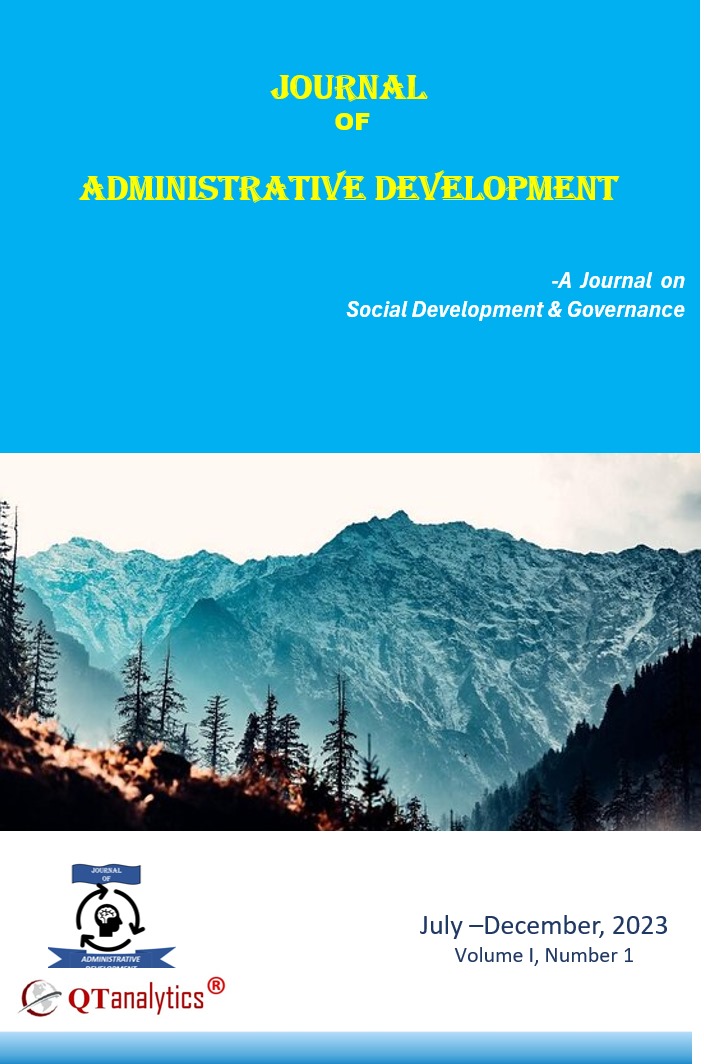PERCEPTION ABOUT WILLINGNESS TO PAY TO PREVENT INDUSTRIAL POLLUTION: A CASE STUDY OF UTTARAKHAND
DOI:
https://doi.org/10.48001/jad.202311.27-47Keywords:
Willingness to Pay, Pollution, Health, Industries, Waste ManagementAbstract
Industrialization has brought economic growth and development to many regions across the globe, including the Indian Himalayan Region (IHR). However, it has also resulted in an increase in environmental pollution, posing serious threats to the delicate ecosystems of the Himalayas. Understanding public perception regarding willingness to pay (WTP) to mitigate industrial pollution is crucial for sustainable development and effective policy implementation. The purpose of this study is to determine the WTP for a pollution-free environment in the Indian hill state of Uttarakhand using the Contingent Valuation (CV) approach. Data for this study was collected through structured questionnaire and results reveals that 71.2 % of respondents were prepared to pay for improved environmental standards. 21.3 % were not willing to pay, as they consider it as a responsibility of either the government or industrialists to manage the industrial pollution. As a result, this paper will offer guidelines for creating an effective policy framework and raise awareness among all stakeholders on how to manage industrial pollution in Rudrapur. According to the study, effective outreach programmes for industrial pollution management could be offered by social institutions, financial institutions, non-governmental organisations (NGOs), and the government as a part of their social responsibility.

Downloads
Published
Issue
Section
License
All QTanalytics journals are published Open Access. Articles are licensed under an open access licensed under Creative Commons Attribution-NonCommercial 4.0 International License. In addition, the article may be reused and quoted provided that the original published version is cited. These conditions allow for maximum use and exposure of the work, while ensuring that the authors receive proper credit.
 journals@qtanalytics.in, support@qtanalytics.in | Phone: +91-9458270556
journals@qtanalytics.in, support@qtanalytics.in | Phone: +91-9458270556